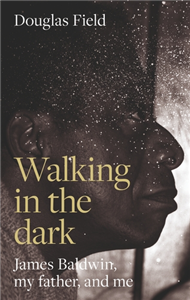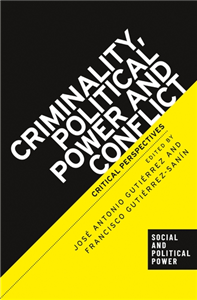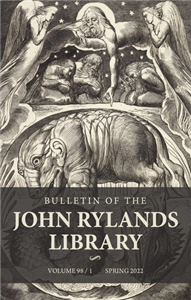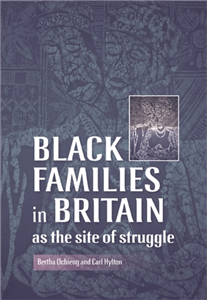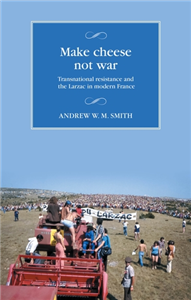Your Search Results
-
Major Street Publishing
Major Street Publishing is an independent book publisher based in Melbourne, Australia. Founded in 2009 by Lesley Williams, Major Street specialises in publishing high quality business, leadership, personal finance and motivational books.
View Rights Portal
-
Promoted ContentApril 2023
The Battle for Water
In the century of drought
by Jürgen Rahmig
— Water as a reason for war and a political instrument of power — Unique overview of global water conflicts — Foreword by Wolfgang Ischinger Every year, droughts in African countries cause hundreds of thousands of deaths and much suffering. Europe also experienced drought in 2022's summer of record temperatures. Without water, there can be no life. More and more people are suffering from water shortages. Climate change is fuelling the distribution battles for water; violent conflicts over this precious resource are the order of the day. Whether the protests in Iraq, the war in Syria, in the Himalayas, the Nile conflict and in many other places, water is already a reason for war and is being misused as a political instrument of power. The construction of huge dams, the targeted closure of locks, river diversions, water and land grabbing bring wars over the "blue gold" with them. In a unique overview, journalist Jürgen Rahmig describes the struggle for water in the 21st century. Where do dangers lurk today; where will they be tomorrow, and how can we prevent wars over precious water?
-
Promoted ContentHumanities & Social SciencesApril 2009
Tensions in the struggle for sexual minority rights in Europe
Que(e)rying political practices
by Nico Beger
Tensions in the struggle for sexual minority rights in Europe, newly available in paperback, is the first queer and poststructuralist reading of political rights concepts in the specific European transnational context. In the last thirty years Europe has seen the rise of gay, lesbian, bisexual and transgender movements fighting nationally and transnationally for participation rights in society. In addition academic theorists have increasingly paid attention to the epistemological and ontological roles gender and sexuality play in modern politics. However, in the political process of arguing for rights the centrality of those roles is mostly hidden from view in official institutional and movement discourses. This book investigates the conceptual themes of lesbian, gay and transgender rights and lobby politics in Europe and their open and hidden relations to binary and hierarchical orders of dominance. It contributes to an understanding of the conditions upon which politics of inclusion, participation, social justice and equality rest and why struggles for sexual minority rights have been so difficult and slow. It illuminates how the paradigms of political discourse constitute, consolidate and contest the meaning and cultural significance of gender and sexuality on modern, democratic, capitalist European societies. ;
-
 Trusted Partner
Humanities & Social SciencesMarch 2017
Trusted Partner
Humanities & Social SciencesMarch 2017Sunningdale, the Ulster Workers' Council strike and the struggle for democracy in Northern Ireland
by David McCann, Cillian McGrattan
-
 Trusted Partner
Business, Economics & LawMay 2025
Trusted Partner
Business, Economics & LawMay 2025Steelworkers in struggle
An oral history of the 1980 national steel strike
by Charlie McGuire
Using oral histories gathered from trade unionists, this book explores the national steelworkers strike of 1980 and asserts its significance as a key turning point in modern British history. The strike was nominally a response to a 2% pay offer made by British Steel Corporation (BSC), at a time when inflation was 17%, but was generated by the widespread works closures that characterised the British steel industry at this time. The outcome of the strike was a much higher pay increase but no change to the deindustrialisation strategy of BSC and the government. The book explores the strike from the perspective of those who fought it and reveals the short and longer-term consequences it had on the industry, the unions and the workers themselves.
-
 Trusted Partner
Humanities & Social SciencesApril 2016
Trusted Partner
Humanities & Social SciencesApril 2016University engagement and environmental sustainability
by Michael Osborne, Patricia Inman, Diana Robinson
Universities have a key role to play in contributing to environmental development and combating climate change. The chapters within this volume detail the challenges faced by higher education institutions in considering environmental sustainability, and provide both a broad view of university engagement and a detailed examination of various projects. As part of this series in association with the Place and Social Capital and Learning (PASCAL) International Observatory, the three key PASCAL themes of place management, lifelong learning and the development of social capital are considered throughout the book. While universities have historically generated knowledge outside of specific local contexts, this book argues that it is particularly important for them to engage with the local community and to consider diverse perspectives and assets when looking at issues within an ecological context. The chapters in this volume provide new perspectives and frames of reference for transforming universities by engaging in the development of resilient communities.
-
 Trusted Partner
Biography & True StoriesNovember 2024
Trusted Partner
Biography & True StoriesNovember 2024Walking in the dark
James Baldwin, my father and I
by Douglas Field
A moving exploration of the life and work of the celebrated American writer, blending biography and memoir with literary criticism. Since James Baldwin's death in 1987, his writing - including The Fire Next Time, one of the manifestoes of the Civil Rights Movement, and Giovanni's Room, a pioneering work of gay fiction - has only grown in relevance. Douglas Field was introduced to Baldwin's essays and novels by his father, who witnessed the writer's debate with William F. Buckley at Cambridge University in 1965. In Walking in the dark, he embarks on a journey to unravel his life-long fascination and to understand why Baldwin continues to enthral us decades after his death. Tracing Baldwin's footsteps in France, the US and Switzerland, and digging into archives, Field paints an intimate portrait of the writer's life and influence. At the same time, he offers a poignant account of coming to terms with his father's Alzheimer's disease. Interweaving Baldwin's writings on family, illness, memory and place, Walking in the dark is an eloquent testament to the enduring power of great literature to illuminate our paths.
-
 Trusted Partner
Humanities & Social SciencesJanuary 2024
Trusted Partner
Humanities & Social SciencesJanuary 2024The debate on Black Civil Rights in America
by Kevern Verney
-
 Trusted Partner
Trusted Partner
-
 Trusted Partner
Humanities & Social SciencesSeptember 2006
Trusted Partner
Humanities & Social SciencesSeptember 2006The struggle for a social Europe
Trade unions and EMU in times of global restructuring
by Andreas Bieler, Steven Fielding, John Callaghan, Steve Ludlam
This book provides a detailed investigation and comparison of the trade unions of five EU member states: Austria, Britain, France, Germany and Sweden, and their positions on Economic and Monetary Union (EMU). Several European-level trade union organisations are also examined. The focus of this project, however, is not limited to EMU as a case study. Rather, EMU is regarded as a vehicle to assess trade unions' options and possibilities to respond to global structural change in general and to participate in the formation of the future economic-political system of the EU in particular. Two principal hypotheses are investigated. Firstly, that a labour movement's position on EMU depends crucially on its length and degree of exposure to the competitive pressures of globalisation, and secondly, that those trade unions which lose influence within the domestic institutional set-up are most in favour of the establishment of an industrial relations system and social regulation at the European level to counter global pressures. By contrast, unions which continue to enjoy a strong position at the national level, are less likely to engage in European co-operation. ;
-
 Trusted Partner
Politics & governmentFebruary 2017
Trusted Partner
Politics & governmentFebruary 2017Sunningdale, the Ulster Workers' Council strike and the struggle for democracy in Northern Ireland
by Edited by David McCann, Cillian McGrattan
The 'Sunningdale experiment' of 1973-4 witnessed the first attempt to establish peace in Northern Ireland through power-sharing. However, its provisions, particularly the cross-border 'Council of Ireland', proved to be a step too far. The experiment floundered amid ongoing paramilitary-led violence, finally collapsing in May 1974 as a result of the Ulster Workers' Council strike. Drawing on new scholarship from some of the top political historians working on the period, this book presents a series of reflections on how key protagonists struggled with notions of power-sharing and the 'Irish dimension', and how those struggles inhibited a deepening of democracy and the ending of violence for so long.
-
 Trusted Partner
Humanities & Social SciencesDecember 2025
Trusted Partner
Humanities & Social SciencesDecember 2025Criminality, political power and conflict
Critical perspectives
by José Antonio Gutiérrez Danton, Francisco Gutiérrez Sanín
In the aftermath of the greed vs. grievance debate and the new wars paradigm, the focus of conflict studies shifted decisively to understanding "predatory" behaviours as the raison d'etre of contemporary conflict. Conflict was viewed as a continuum in which the more you engage in criminal behaviour, the less political you are.This approach has been robustly criticised over the past 15 years; however, in the process, we have been left with unsuitable concepts to handle the complex interactions between civil war, political power and criminality. The departure point here is the understanding of politics and criminality as two historically differentiated domains of human activity. Different, but interrelated, often co-constitutive and overlapping. Here, we empirically and theoretically explore their interactions, connections, and convergences, not focusing solely on irregular actors, thus bringing back the State and elites into this debate.
-
 Trusted Partner
Humanities & Social SciencesJuly 2016
Trusted Partner
Humanities & Social SciencesJuly 2016The European Union's fight against terrorism
by Christopher Baker-Beall
-
 Trusted Partner
Humanities & Social SciencesOctober 2016
Trusted Partner
Humanities & Social SciencesOctober 2016Medicine, health and Irish experiences of conflict, 1914–45
by David Durnin, Ian Miller
-
 Trusted Partner
Literature & Literary StudiesJune 2022
Trusted Partner
Literature & Literary StudiesJune 2022Bulletin of the John Rylands Library 98/1
The Artist of the Future Age: William Blake, Neo-Romanticism, Counterculture and Now
by Douglas Field
This special issue of the Bulletin of the John Rylands Library is devoted to William Blake. It explores the British and European reception of Blake's work from the late nineteenth century to the present day, with a particular focus on the counterculture. Opening with two articles by the late Michael Horovitz, an important figure in the 'Blake Renaissance' of the 1960s, the issue goes on to investigate the ideological struggle over Blake in the early part of the twentieth century, with particular reference to W. B. Yeats. This is followed by articles on the artistic avant-garde and underground of the 1960s and on Blake's significance for science fiction authors of the 1970s. The issue closes with an article on the contemporary Belgian art collective maelstrÖm reEvolution.
-
 Trusted Partner
Humanities & Social SciencesMay 2010
Trusted Partner
Humanities & Social SciencesMay 2010Black families in Britain as the site of struggle
None
by Bertha Ochieng, Carl Hylton
This edited book provides a valuable, unique and scholarly contribution to the study of Black families (African and African Caribbean) in the UK. It combines a systematic yet clear-headed approach with up-to-date and well-researched data to support its many stimulating assertions. All fifteen contributors (including academics, arts practitioners and community activists) are of African or African Caribbean descent and approach their subject matter with a dedicated 'hands-on' feel. Their committed approach is supported by empirical research and comprehensive review of the literature. With chapters on social policy, education, music, sports, social exclusion, racism, religion and spirituality, this book will become the essential text about UK families of African/Caribbean descent for higher education students, professionals, practitioners and the general reader. It will also appeal to professional organisations working with Black individuals and families. ;
-
 Trusted Partner
Geography & the EnvironmentJune 2025
Trusted Partner
Geography & the EnvironmentJune 2025Urban gardening and the struggle for social and spatial justice
by Chiara Certomà, Susan Noori, Martin Sondermann
-
 Trusted Partner
Humanities & Social SciencesSeptember 2016
Trusted Partner
Humanities & Social SciencesSeptember 2016Lifelong learning, the arts and community cultural engagement in the contemporary university
by Michael Osborne, Darlene Clover, Kathy Sanford
-
 Trusted Partner
Humanities & Social SciencesFebruary 2026
Trusted Partner
Humanities & Social SciencesFebruary 2026Make cheese not war
Transnational resistance and the Larzac in modern France
by Andrew W. M. Smith
In 1971, the French government announced a massive extension of its military base on the Larzac plateau in southern France. Land was to be expropriated from 107 farms around the small town of La Cavalerie. Limited resistance was expected, but what happened next exceeded all expectations. Local sheep farmers set up protest camps and occupied the land. They soon attracted an astonishing level of support, pioneering a form of regional radicalism with global implications. Drawing out the international dimensions of the protest, Make cheese not war explores a transnational resistance movement in the 1970s that challenged dominant visions of modernity and became a wellspring of radical alternatives. Exploring previously unconsulted archives in France and elsewhere, the book offers an in-depth analysis of the decade-long peasant movement and its aftermath. Repositioning the Larzac struggle within a wider network of French and international solidarities, from the US to the UK, Germany, Burkina Faso, New Caledonia and Japan, the book retraces political networks of pacifist activism, as well as environmental movements and anti-nuclear protest. It shows how this French peasant campaign became both a platform and a model for popular engagement.
-
 Trusted Partner
Humanities & Social SciencesNovember 2018
Trusted Partner
Humanities & Social SciencesNovember 2018The political materialities of borders
by Olga Demetriou, Rozita Dimova, Hastings Donnan, Sarah Green
-
 Trusted Partner
Trusted Partner










